
The Charm of Pennsylvania Dutch Country
Pennsylvania Dutch Country, nestled in the heart of Pennsylvania, is a picturesque region known for its lush farmland, rolling hills, and unique cultural heritage. This area is home to the Amish and Mennonite communities, who maintain a simple, traditional way of life that offers a fascinating glimpse into a bygone era. Visitors can enjoy scenic drives through the countryside, where horse-drawn buggies share the road with modern vehicles, and beautifully maintained farms dot the landscape. One of the highlights of Pennsylvania Dutch Country is the chance to experience Amish culture firsthand. Tourists can visit local farms and markets to purchase handmade goods, fresh produce, and delicious baked goods, such as the famous shoo-fly pie. Many Amish families open their homes to visitors, providing tours and demonstrations of traditional crafts like quilting, woodworking, and candle-making. In addition to its cultural attractions, Pennsylvania Dutch Country boasts a variety of recreational activities. The region is dotted with charming small towns, such as Lancaster and Intercourse, where visitors can explore quaint shops, museums, and historic sites. Outdoor enthusiasts will find plenty of opportunities for hiking, biking, and bird-watching in the area's numerous parks and nature reserves. The Susquehanna River, which flows through the region, offers options for fishing, boating, and kayaking. Pennsylvania Dutch Country is also known for its delicious cuisine. The local food scene features hearty, homemade dishes that reflect the agricultural roots of the region. Visitors can savor traditional Pennsylvania Dutch fare, such as pot pie, chow-chow, and apple butter, at numerous family-owned restaurants and diners. For a truly unique dining experience, many Amish families offer home-cooked meals in their own homes, allowing guests to enjoy authentic, farm-to-table food in a warm, welcoming setting.
Local tips in Pennsylvania Dutch Country
- Respect the local customs and traditions, especially when visiting Amish communities. Avoid taking photographs of the Amish without permission.
- Plan your visit during the warmer months to fully enjoy the outdoor activities and scenic drives.
- Try to visit local farmers' markets early in the morning for the freshest produce and handmade goods.
- Consider staying in a bed and breakfast or a farmhouse to get a more intimate experience of the local culture.
- Make sure to have cash on hand, as many Amish-run businesses do not accept credit cards.
The Charm of Pennsylvania Dutch Country
Pennsylvania Dutch Country, nestled in the heart of Pennsylvania, is a picturesque region known for its lush farmland, rolling hills, and unique cultural heritage. This area is home to the Amish and Mennonite communities, who maintain a simple, traditional way of life that offers a fascinating glimpse into a bygone era. Visitors can enjoy scenic drives through the countryside, where horse-drawn buggies share the road with modern vehicles, and beautifully maintained farms dot the landscape. One of the highlights of Pennsylvania Dutch Country is the chance to experience Amish culture firsthand. Tourists can visit local farms and markets to purchase handmade goods, fresh produce, and delicious baked goods, such as the famous shoo-fly pie. Many Amish families open their homes to visitors, providing tours and demonstrations of traditional crafts like quilting, woodworking, and candle-making. In addition to its cultural attractions, Pennsylvania Dutch Country boasts a variety of recreational activities. The region is dotted with charming small towns, such as Lancaster and Intercourse, where visitors can explore quaint shops, museums, and historic sites. Outdoor enthusiasts will find plenty of opportunities for hiking, biking, and bird-watching in the area's numerous parks and nature reserves. The Susquehanna River, which flows through the region, offers options for fishing, boating, and kayaking. Pennsylvania Dutch Country is also known for its delicious cuisine. The local food scene features hearty, homemade dishes that reflect the agricultural roots of the region. Visitors can savor traditional Pennsylvania Dutch fare, such as pot pie, chow-chow, and apple butter, at numerous family-owned restaurants and diners. For a truly unique dining experience, many Amish families offer home-cooked meals in their own homes, allowing guests to enjoy authentic, farm-to-table food in a warm, welcoming setting.
When is the best time to go to Pennsylvania Dutch Country?
Iconic landmarks you can’t miss
The Amish Village
Explore the heritage and traditions of the Amish community at The Amish Village, a must-visit heritage museum in Pennsylvania's picturesque countryside.
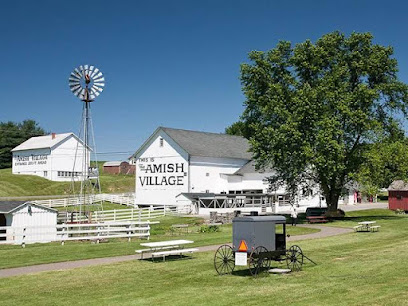
Amish Farm and House
Explore the enchanting Amish Farm and House in Lancaster County, where tradition meets tranquility, offering a unique glimpse into Amish culture.
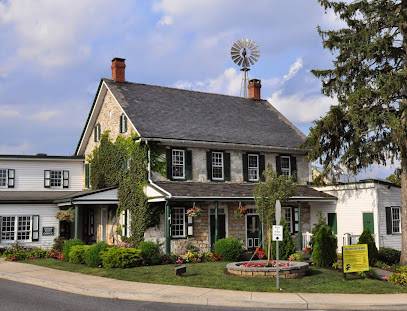
Amish Experience
Experience the rich traditions and serene lifestyle of the Amish community in Bird in Hand, Pennsylvania, and discover a world like no other.
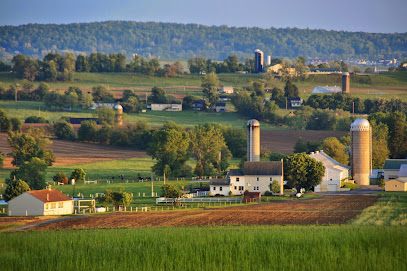
Old Windmill Farm
Experience the enchanting world of Old Windmill Farm in Ronks, PA, where farm life meets Amish traditions in a picturesque setting.
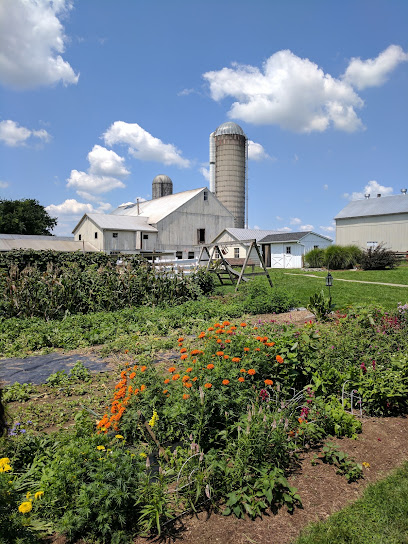
Unmissable attractions to see
Knoebels Amusement Resort
Explore the thrilling rides, beautiful scenery, and nostalgic charm of Knoebels Amusement Resort in Pennsylvania, where family fun awaits.
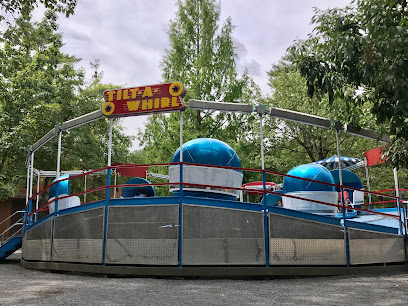
Dutch Wonderland Family Amusement Park
Experience family fun at Dutch Wonderland, a magical amusement park in Lancaster, Pennsylvania, with rides, shows, and enchanting attractions for all ages.
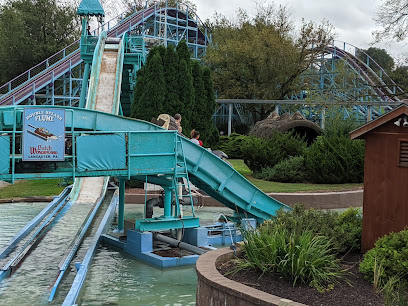
Lancaster Central Market
Experience the vibrant culture and flavors of Lancaster at Central Market, a historic farmers' market with local produce and artisanal delights.
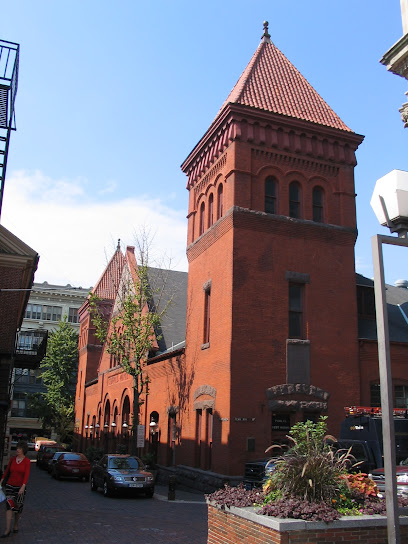
The Amish Village
Discover the tranquil lifestyle and rich traditions of the Amish at The Amish Village in Ronks, Pennsylvania, a unique heritage museum and cultural experience.
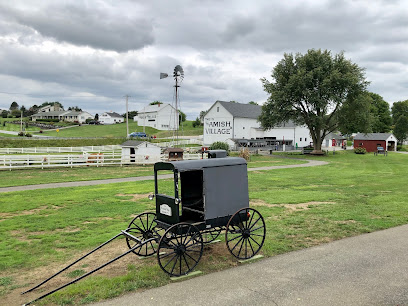
Amish Farm and House
Immerse yourself in the rich traditions and serene lifestyle of the Amish community at Amish Farm and House in Lancaster, Pennsylvania.
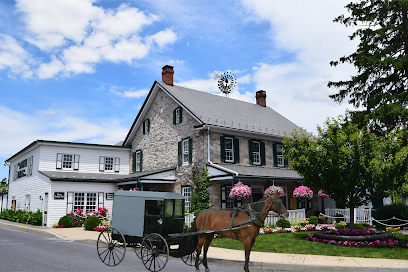
Lititz Springs Park
Explore the natural beauty and historical charm of Lititz Springs Park, an idyllic retreat for relaxation and recreation in Pennsylvania.
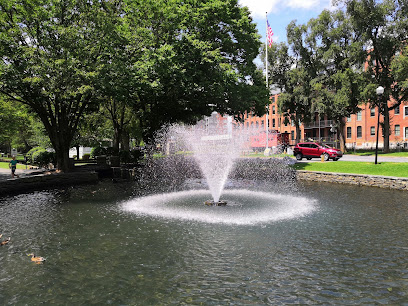
Amish Experience
Explore the rich cultural heritage of the Amish community at the Amish Experience in Bird in Hand, PA. A unique journey into tradition awaits.
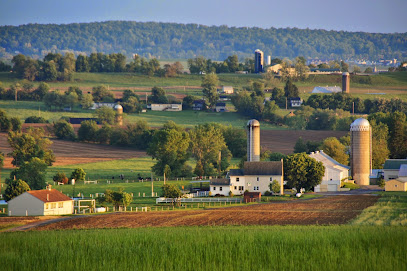
Old Windmill Farm
Experience the serene beauty and traditional charm of Old Windmill Farm in Pennsylvania's picturesque Amish country.
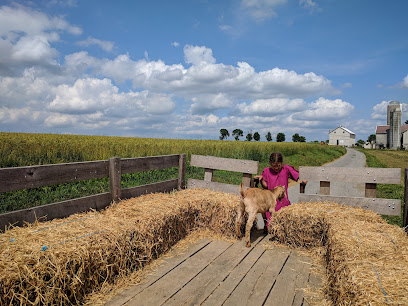
Wolf Sanctuary of PA
Experience the enchanting Wolf Sanctuary of PA, where wildlife conservation meets unforgettable encounters with majestic wolves in a serene natural setting.
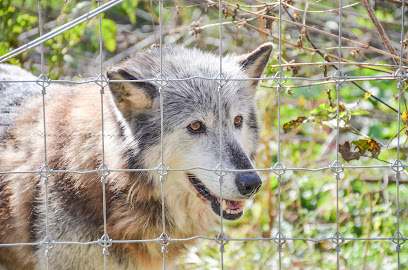
Hands-on House, Children's Museum of Lancaster
Explore, learn, and play at Hands-on House, Children's Museum of Lancaster – a fantastic destination for families in Pennsylvania.
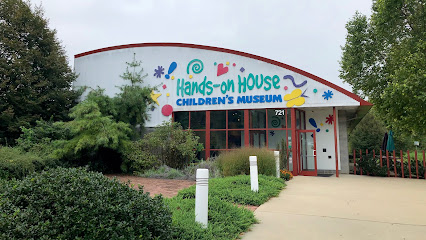
Landis Valley Village & Farm Museum
Discover the rich heritage of the Pennsylvania Dutch at Landis Valley Village & Farm Museum, a living history experience in Lancaster County.
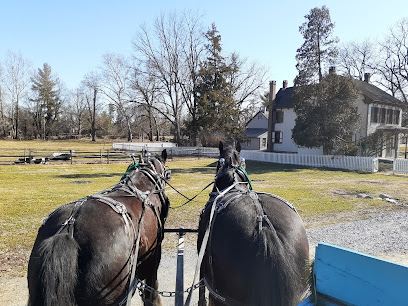
Ephrata Cloister
Explore the Ephrata Cloister, a historic gem in Pennsylvania showcasing 18th-century religious life and stunning architecture amidst tranquil gardens.
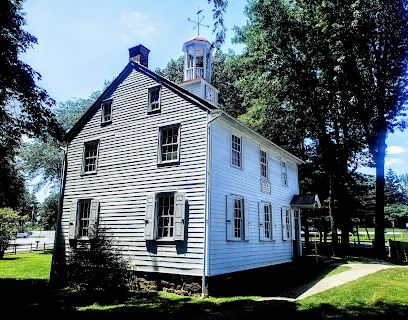
President James Buchanan's Wheatland
Discover the historic Wheatland, home of President James Buchanan, and immerse yourself in 19th-century American history in Lancaster, Pennsylvania.
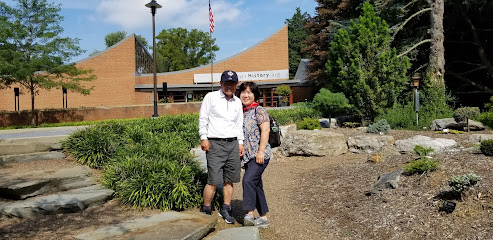
Lancaster Balloon Rides
Discover Lancaster County's breathtaking landscapes and charming Amish farms from a unique perspective with Lancaster Balloon Rides.
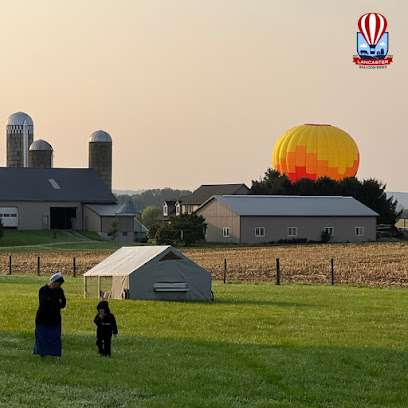
Verdant View Farm
Discover the beauty and charm of Verdant View Farm in Pennsylvania, where rural life meets delightful experiences for the whole family.
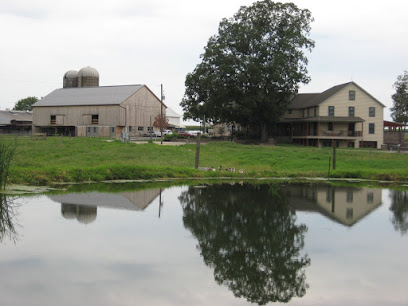
Essential places to dine
Shady Maple Smorgasbord
Discover authentic Pennsylvania Dutch cuisine at Shady Maple Smorgasbord - where tradition meets flavor in a family-friendly setting.
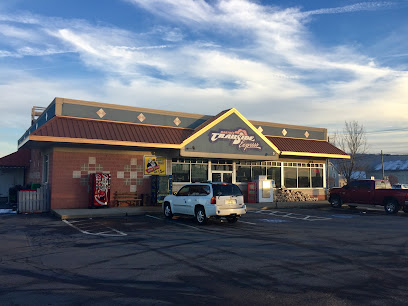
Miller's Smorgasbord Restaurant
Experience authentic Amish cuisine at Miller's Smorgasbord Restaurant—where every meal is a celebration of local flavors and traditions.
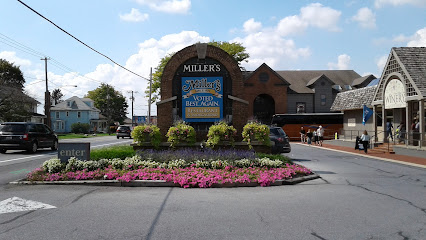
Dienner's Country Restaurant
Experience authentic American comfort food at Dienner's Country Restaurant in Pennsylvania's picturesque Dutch Country.
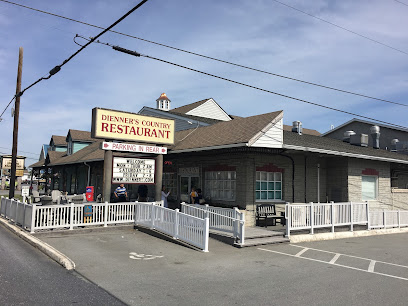
Bird-in-Hand Family Restaurant & Smorgasbord
Discover authentic Pennsylvania Dutch cuisine at Bird-in-Hand Family Restaurant & Smorgasbord - A family-friendly dining experience with delightful buffets!
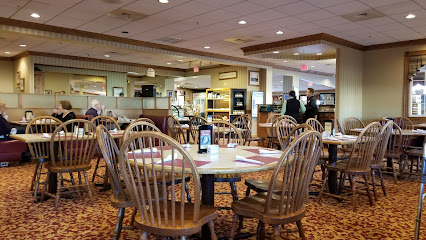
Katie's Kitchen
Discover delightful American breakfasts and authentic Pennsylvania Dutch cuisine at Katie's Kitchen in Ronks.
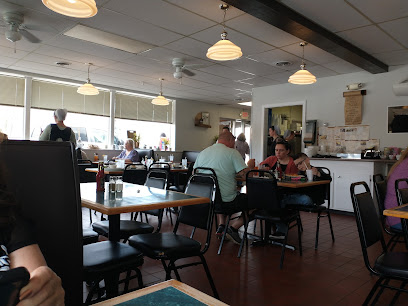
Dutch Country Restaurant
Discover the essence of Pennsylvania Dutch dining at Dutch Country Restaurant – where tradition meets flavor in every bite.
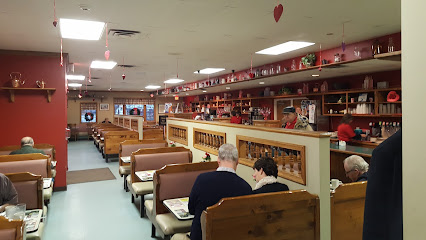
Hometown Kitchen
Experience authentic Pennsylvania Dutch flavors at Hometown Kitchen - a cozy diner perfect for families and breakfast lovers alike.
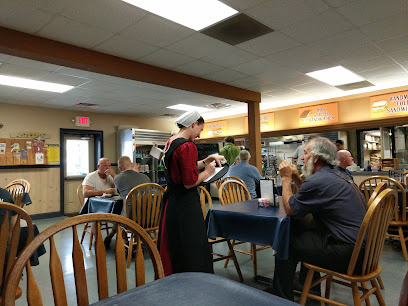
Olde Mill Restaurant
Experience delightful American cuisine with a Dutch twist at Olde Mill Restaurant in Intercourse, PA - a must-visit for food lovers!
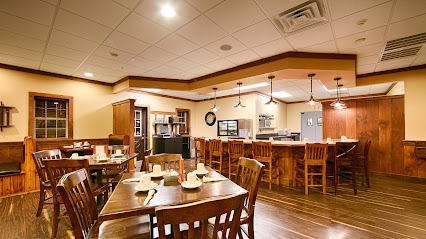
The BBQ Barn
Experience authentic barbecue flavors at The BBQ Barn in Lancaster - where every bite tells a delicious story.
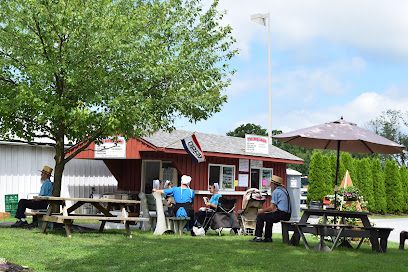
Plain & Fancy Restaurant - Family Style for Large Groups Only
Savor the flavors of Pennsylvania Dutch cuisine at Plain & Fancy Restaurant - perfect for families and large groups.
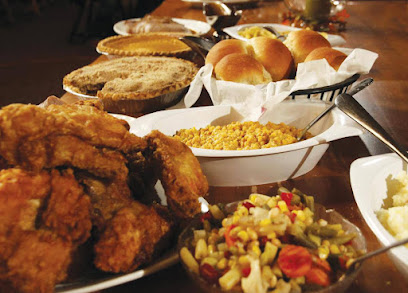
Samuel and Ruth Lapp House
Experience authentic Amish culture at Samuel and Ruth Lapp House—where family-friendly hospitality meets delicious local cuisine.
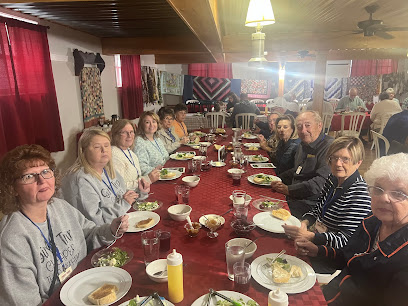
Markets, malls and hidden boutiques
The Old Village Store
Experience the rich local culture at The Old Village Store, an amusement center in Bird in Hand, PA, perfect for families and craft lovers.
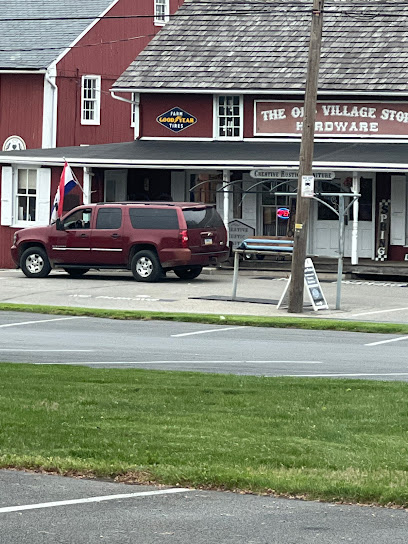
Plain & Fancy Country Store
Discover authentic Amish goods and charming homeware at Plain & Fancy Country Store in Bird in Hand, Pennsylvania - a must-visit for every tourist.
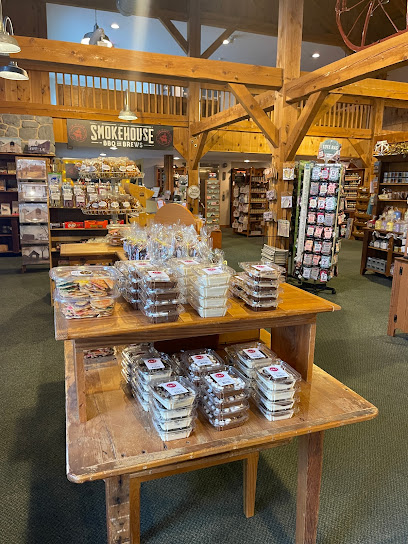
Essential bars & hidden hideouts
Bulls Head Public House
Discover the historic Bulls Head Public House in Lititz, offering delicious food, a cozy atmosphere, and a vibrant selection of drinks.
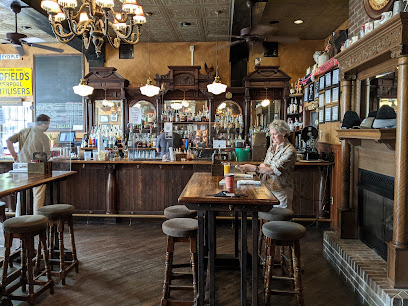
Annie Bailey's Irish Public House
Experience authentic Irish culture and cuisine at Annie Bailey's Irish Public House, a beloved gastropub in the heart of Lancaster offering a cozy atmosphere and diverse menu.
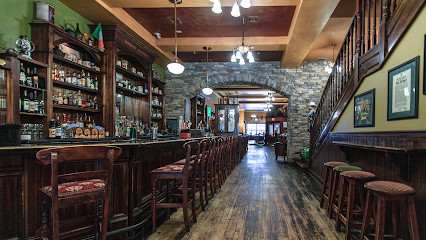
Loxley's
Discover Loxley's, a vibrant American restaurant and bar in Lancaster, offering a diverse menu of delicious cuisine and refreshing drinks.
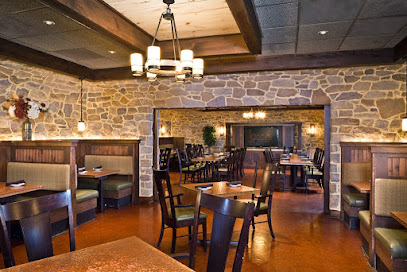
The Greenfield Restaurant & Bar
Discover the elegance of fine dining at The Greenfield Restaurant & Bar, where exceptional cuisine meets a sophisticated atmosphere in Lancaster.
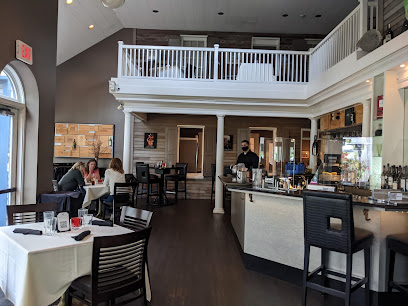
Lancaster Brewing Company Taproom & Grill
Discover Lancaster Brewing Company Taproom & Grill: a haven for craft beer lovers and foodies, featuring a diverse menu and vibrant atmosphere in Lancaster, PA.
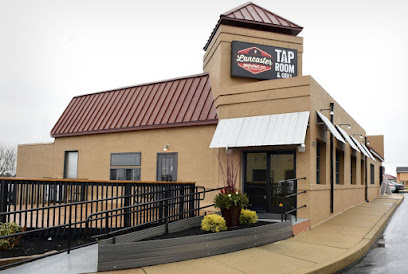
The Belvedere Inn
Experience the essence of fine dining at The Belvedere Inn, where American cuisine meets an elegant atmosphere in the heart of Lancaster.
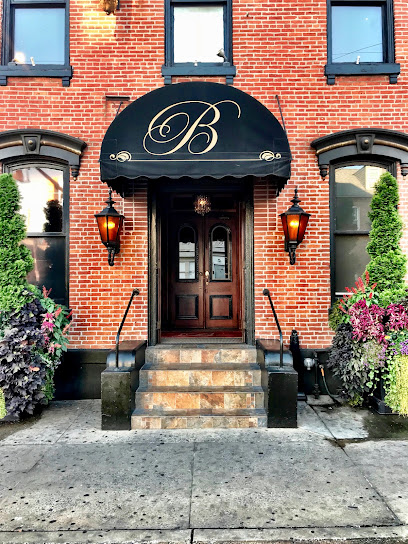
Horse Inn
Experience the best of American cuisine and local flavors at the Horse Inn, a beloved restaurant and lounge in Lancaster, Pennsylvania.
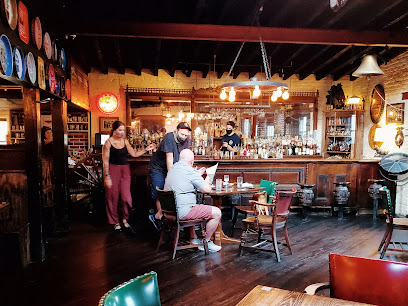
The Lancaster Dispensing Company
Discover the vibrant atmosphere and delicious American cuisine at The Lancaster Dispensing Company, your go-to pub in the heart of Lancaster.
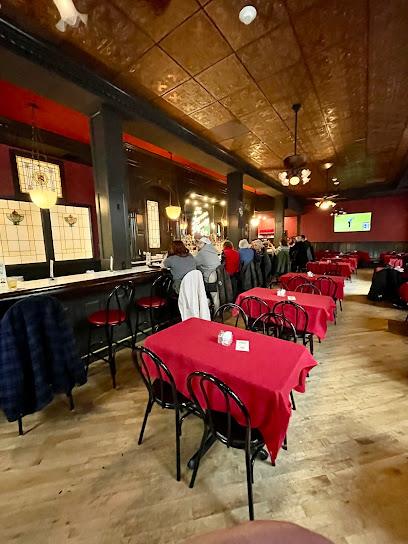
551 West
Experience the heart of Lancaster at 551 West, where American cuisine meets a lively bar atmosphere and karaoke fun.
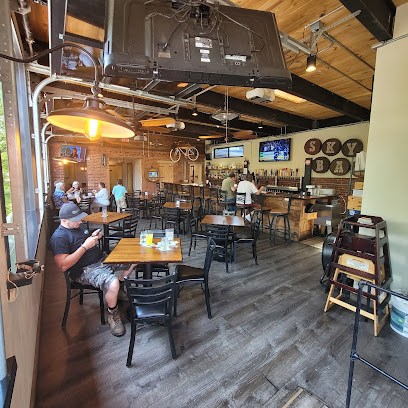
Quips Pub
Experience the charm of a traditional English pub at Quips Pub in Lancaster, featuring authentic British fare and a welcoming atmosphere.
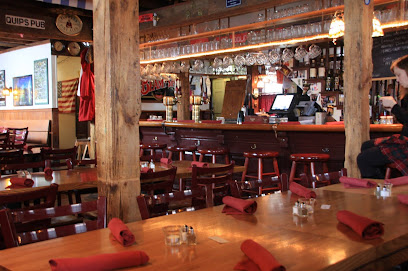
Stubby's Bar and Grille
Experience the lively spirit of Stubby's Bar and Grille in Lancaster, PA, where delicious grilled dishes meet a welcoming sports bar ambiance.
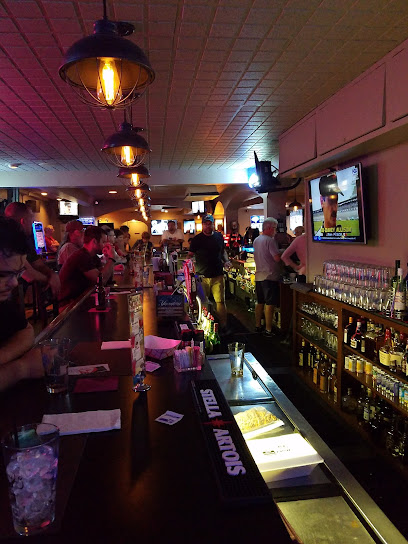
P.J. Whelihan's Pub + Restaurant - Lancaster
Explore the vibrant atmosphere of P.J. Whelihan's Pub + Restaurant in Lancaster, where delicious grilled dishes and sports excitement await you.
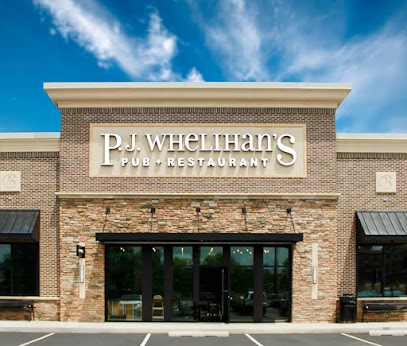
American Bar & Grill Lanc
Experience mouthwatering grilled dishes and artisanal pizzas at American Bar & Grill Lanc, the heart of Lancaster's culinary scene.
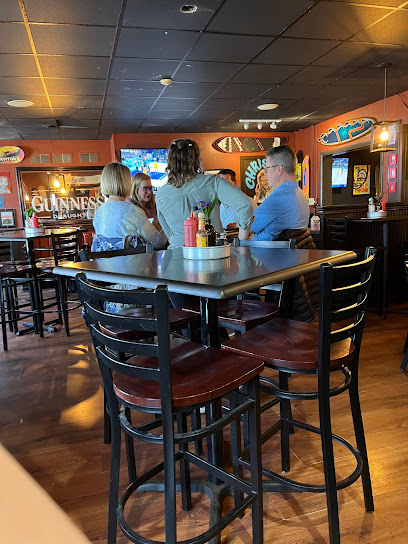
Cork & Cap Restaurant
Experience the essence of American cuisine at Cork & Cap Restaurant, where rich flavors meet a charming atmosphere in Lancaster, PA.
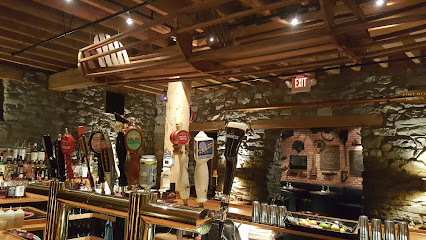
Local Phrases about Pennsylvania Dutch Country
-
- HelloHallo
[HAH-loh] - GoodbyeAuf Wiedersehn
[owf VEE-der-zane] - YesYa
[yah] - NoNee
[nee] - Please/You're welcomeGern gscheh
[gehrn g'-SHAY] - Thank youDanki
[DAHN-kee] - Excuse me/SorryEntschuldigung
[ent-SHOOL-dee-goong] - How are you?Wie bischt du?
[vee bist doo?] - Fine. And you?Gut. Un du?
[goot. oon doo?] - Do you speak English?Schwetzscht du Englisch?
[shvetzst doo ENG-lish?] - I don't understandIch versteh net
[ikh fer-SHTAY net]
- HelloHallo
-
- I'd like to see the menu, pleaseIch daet gern die Speisekarte sehn, bitt
[ikh deht gehrn dee SPY-suh-kahr-teh zane, bit] - I don't eat meatIch essa kaa Fleesch
[ikh EHS-sah kah FLAY-sh] - Cheers!Prost!
[prohst] - I would like to pay, pleaseIch daet gern bezahle, bitt
[ikh deht gehrn beh-ZAH-luh, bit]
- I'd like to see the menu, pleaseIch daet gern die Speisekarte sehn, bitt
-
- Help!Helft!
[helft] - Go away!Gieh fort!
[gee fort] - Call the Police!Ruf die Bullerei!
[roof dee boo-LAIR-eye] - Call a doctor!Ruf en Dokter!
[roof en DOCK-ter] - I'm lostIch bin ferlore
[ikh bin fer-LOH-reh] - I'm illIch bin krank
[ikh bin krAHnk]
- Help!Helft!
-
- I'd like to buy...Ich daet gern kaafe...
[ikh deht gehrn KAH-fuh...] - I'm just lookingIch kucke nor
[ikh KOOK-uh nor] - How much is it?Wie fill kost's?
[vee fill kosts?] - That's too expensiveDos iss zu deier
[doss iss tsoo DIRE] - Can you lower the price?Kannscht du der Preis runtermach?
[kannsht doo dare prise RUNT-er-mahkh?]
- I'd like to buy...Ich daet gern kaafe...
-
- What time is it?Was ischt es for en Zeit?
[woss isht es for en tsyte?] - It's one o'clockEs ischt ei Uhr
[es isht eye OOR] - Half past (10)Halwer zehn
[HAL-wer zane] - MorningMorga
[MOR-guh] - AfternoonNoon
[NOON] - EveningOwet
[ow-WET] - YesterdayGeschdern
[GESH-dern] - TodayHitt
[hit] - TomorrowMorga
[MOR-guh] - 1Eins
[eyns] - 2Zwei
[tsv-eye] - 3Drei
[dry] - 4Vier
[feer] - 5Fief
[feef] - 6Sex
[seks] - 7Siebe
[zee-buh] - 8Acht
[akht] - 9Noin
[noyn] - 10Zehn
[zane]
- What time is it?Was ischt es for en Zeit?
-
- Where's a/the...?Wu iss en/der...?
[woo iss en/daer...?] - What's the address?Was iss die Addresse?
[woss iss dee AH-dress-eh?] - Can you show me (on the map)?Kannscht mich weise (uf der Kaart)?
[kannsht mikh vy-seh (oof dare kart)?] - When's the next (bus)?Wann kimmt der nächschte (Bus)?
[vahn kihmt dare NEEKS-tuh (boos)?] - A ticket (to ....)En Tickat (nooch ....)
[en TIK-et (nohk ....)]
- Where's a/the...?Wu iss en/der...?
History of Pennsylvania Dutch Country
-
In the late 17th and early 18th centuries, a wave of German-speaking immigrants from the Rhineland-Palatinate region in Germany began to arrive in Pennsylvania. These settlers, often referred to as the Pennsylvania Dutch (a corruption of 'Deutsch', meaning German), were primarily seeking religious freedom and economic opportunities. They formed tight-knit communities, preserving their language, traditions, and culture.
-
William Penn, the founder of the Pennsylvania colony, played a crucial role in attracting Pennsylvania Dutch settlers. Penn's policy of religious tolerance made the colony an attractive destination for various persecuted religious groups, including the Amish, Mennonites, and other Anabaptist sects. His vision of a 'Holy Experiment' where people of different faiths could coexist peacefully was instrumental in the diverse settlement of the region.
-
Among the Pennsylvania Dutch, the Amish and Mennonite communities stand out for their distinctive way of life. The Amish, known for their plain dress, horse-drawn buggies, and reluctance to adopt modern technology, have maintained a lifestyle that emphasizes simplicity, community, and faith. The Mennonites, while similar in some respects, are generally more accepting of modern conveniences and technology.
-
Agriculture has been the backbone of Pennsylvania Dutch Country since its inception. The fertile soil and favorable climate allowed these settlers to establish prosperous farms, growing crops like corn, wheat, and tobacco. Farming techniques and tools brought from Europe were adapted to the new environment, contributing to the agricultural heritage that remains a hallmark of the region today.
-
The Pennsylvania Dutch are renowned for their craftsmanship, which includes intricate quilts, furniture, and other handmade goods. The hex signs, colorful and symbolic designs painted on barns, are a distinctive feature of the region's folk art. These crafts not only serve practical purposes but also reflect the cultural and religious values of the community.
-
The Industrial Revolution brought significant changes to Pennsylvania Dutch Country. While many communities remained rooted in agriculture, some embraced new manufacturing opportunities. Railroads and canals improved transportation, facilitating the export of agricultural products and handmade goods. However, the Amish and more conservative Mennonites largely resisted industrialization, maintaining their traditional ways of life.
-
In the 20th century, Pennsylvania Dutch Country began to attract tourists interested in experiencing its unique culture and history. The picturesque landscapes, traditional crafts, and Amish lifestyle drew visitors from across the country and around the world. Tourism has become a vital part of the local economy, with attractions like the Amish Village, the Ephrata Cloister, and the Landis Valley Museum offering insights into the region's heritage.
-
Today, Pennsylvania Dutch Country is a vibrant blend of old and new. While the Amish and Mennonite communities continue to uphold their traditions, the region also embraces modern amenities and industries. Farmers' markets, craft fairs, and cultural festivals celebrate the rich heritage of the Pennsylvania Dutch, ensuring that their legacy endures for future generations.
Pennsylvania Dutch Country Essentials
-
Pennsylvania Dutch Country is located in southeastern Pennsylvania, with Lancaster being a central city in the region. The nearest major airport is Philadelphia International Airport (PHL), approximately 70 miles away. From Philadelphia, you can rent a car, take a bus, or use train services via Amtrak to reach Lancaster. Alternatively, Harrisburg International Airport (MDT) is around 40 miles away and offers regional flights. Driving is a popular option, as the area is well connected by major highways such as I-76 and US-30.
-
Getting around Pennsylvania Dutch Country is easiest by car, as many of the attractions are spread out across the countryside. Car rentals are available at airports and in major cities like Lancaster. Public transportation options include buses operated by the Red Rose Transit Authority (RRTA) in Lancaster and surrounding areas. For a more authentic experience, consider taking a horse-and-buggy ride offered by local Amish and Mennonite families. Biking is also a popular way to explore the scenic routes.
-
The official currency in Pennsylvania Dutch Country, like the rest of the United States, is the US Dollar (USD). Credit and debit cards are widely accepted, but it's advisable to carry some cash, especially when visiting smaller shops, farmers' markets, or rural areas. ATMs are readily available in towns and cities. Mobile payment options such as Apple Pay and Google Wallet are also commonly accepted.
-
Pennsylvania Dutch Country is generally a safe destination for tourists. However, as with any travel destination, standard precautions should be taken. Avoid leaving valuables in plain sight in your car and be cautious in crowded areas. Lancaster city has some neighborhoods with higher crime rates, so it's advisable to stay in well-populated and well-lit areas, especially after dark. Always stay aware of your surroundings and keep an eye on your belongings.
-
In case of emergency, dial 911 for immediate assistance. Lancaster General Hospital is a major medical facility in the area. It's recommended to have travel insurance that covers medical emergencies. Pharmacies are widely available for minor health issues. For non-life-threatening situations, urgent care centers are also an option. Local police stations and fire departments are present throughout the region.
-
Fashion: Do dress modestly, especially when visiting Amish or Mennonite communities. Avoid wearing overly flashy or revealing clothing. Religion: Do respect the local customs and traditions. The Amish and Mennonite communities prefer not to be photographed. Public Transport: Do be respectful and courteous to drivers and fellow passengers. Don't eat or drink on public transport. Greetings: Do greet people with a friendly smile and a nod. Handshakes are common but not always necessary. Eating & Drinking: Do try local foods like shoofly pie, pretzels, and scrapple. Don't be surprised if meals are served family-style in some traditional restaurants.
-
To experience Pennsylvania Dutch Country like a local, visit the Lancaster Central Market, the oldest continuously operated public farmers' market in the United States. Engage with local artisans and farmers, who are often eager to share stories and insights about their crafts and produce. For a unique experience, take a scenic drive along the Amish farmlands, where you can see traditional Amish buggies and well-tended fields. Don't miss out on trying a traditional Amish meal at one of the local family-style restaurants.
Nearby Cities to Pennsylvania Dutch Country
-
Things To Do in Scranton
-
Things To Do in Reading
-
Things To Do in Ithaca
-
Things To Do in Lancaster
-
Things To Do in Gettysburg
-
Things To Do in Allentown
-
Things To Do in Hagerstown
-
Things To Do in Frederick
-
Things To Do in Martinsburg
-
Things To Do in Towson
-
Things To Do in Lambertville
-
Things To Do in Harper's Ferry
-
Things To Do in Baltimore
-
Things To Do in Rochester
-
Things To Do in Philadelphia













